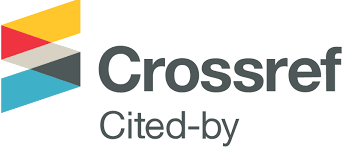Extended Research: Sustainable food consumption is a critical component of sustainable development. Global food consumption trends are shifting towards more sustainable options, such as healthy and organic foods, as consumers become more aware of the environmental and health impacts of their food choices. Social media, with its widespread popularity, has played a significant role in facilitating information sharing and communication about sustainable food consumption among users, thereby promoting sustainable food consumption behaviors. However, social media can also create confusion among consumers due to the diverse views shared through electronic word-of-mouth (eWOM), which can influence consumers differently and result in varied consumption responses. Moreover, companies that specialize in selling sustainable food products are increasingly utilizing social media influencers to promote sustainable food consumption, but there is limited understanding of the effectiveness of influencer marketing in this context. Additionally, little is known about the effectiveness of social media in promoting sustainable food consumption in the perspective of developing countries, which are often characterized by high population densities, increasing demand for sustainable food, and concerns related to food insecurity, rising food costs, unhealthy foods, and inconsistent food supply, all of which negatively impact the social well-being of communities. Therefore, the role of social media in promoting sustainable food consumption is vital, particularly in developing countries.
This research aims to investigate the effectiveness of social media in promoting sustainable food consumption in the context of developing countries. The antecedents of social media, including information sharing, information quality, eWOM, and influencers, are hypothesized to influence consumers' sustainable food attitudes and subsequent sustainable food consumption, drawing on the Stimulus-Organism-Response (S-O-R) model. Information sharing in social media refers to the act of creating and sharing content on social media, while information quality involves the credibility of information sources and content. eWOM refers to online recommendations given by consumers on social media to influence others, and influencers in social media are parties that exert influence on others' buying habits or behaviors.
A quantitative approach was used to collect data from 430 respondents who are social media users and have experienced sustainable food consumption in five selected developing countries: Malaysia, Indonesia, India, Turkey, and South Africa. Structural equation modeling (SEM) with AMOS is applied for data analysis. The study uses a 25-item scale measurement with a Likert scale ranging from 1 (strongly disagree) to 6 (strongly agree). Overall, the structural model shows a good fit, with a chi-square value of 607.983, x2 /df of 2.303, RMSEA of 0.055, and incremental fit values higher than 0.9, including IFI of 0.936, CFI of 0.935, and TLI of 0.926. The results indicate that information sharing, information quality, eWOM, and influencers have a significant positive effect on sustainable food attitudes. The findings also confirm that sustainable food attitudes have a significant positive influence on sustainable food consumption.
The findings of this study have implications for both companies and policymakers. Companies that prioritize socially responsible marketing strategies can benefit from a better understanding of consumer motivations and involvement in social media that influence their sustainable food consumption behavior. This understanding can help companies formulate eco-innovation marketing strategies that leverage social media to promote sustainable food consumption. Policymakers can also use the results to improve policies and support related to social media and sustainable food consumption, such as subsidies, tax reductions, and encouragement of the use of social media platforms to promote sustainable food consumption. Theoretical implications of this study include extending the applicability of the S-O-R model to the context of social media and sustainable food consumption. The study confirms the relationship effects of social media antecedents, representing the stimulus factors, on sustainable food attitudes as the organism, and subsequent sustainable food consumption as the response.
Funding statement
The author(s) received no financial support for the research, authorship, and/or publication of this article.
Conflict of interest
The author(s) declared no potential conflicts of interest with respect to the research, authorship, and/or publication of this article.





